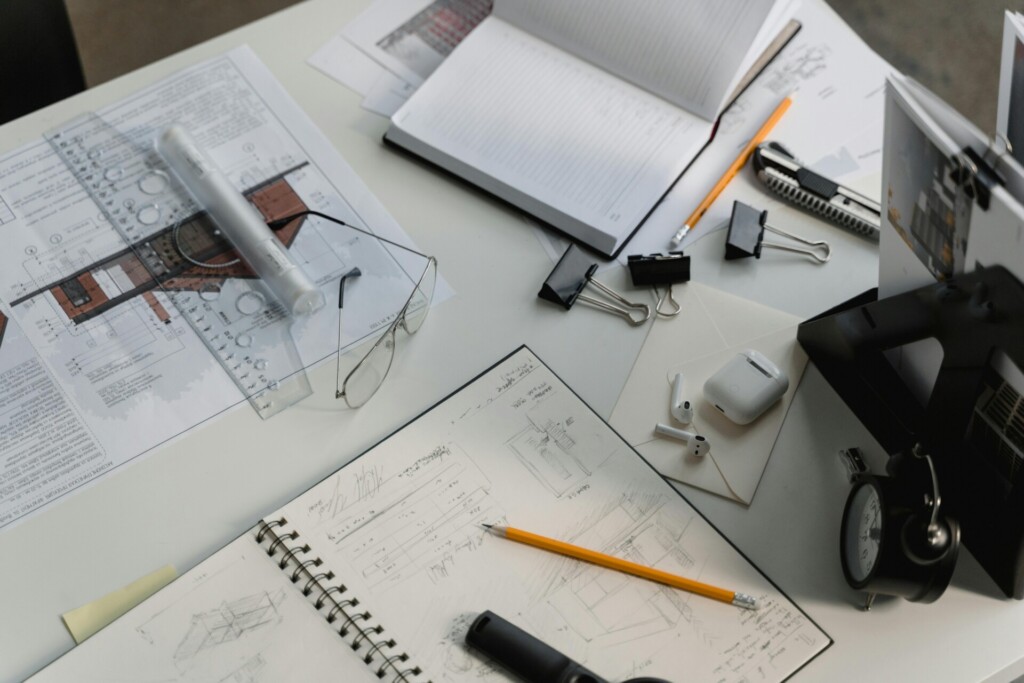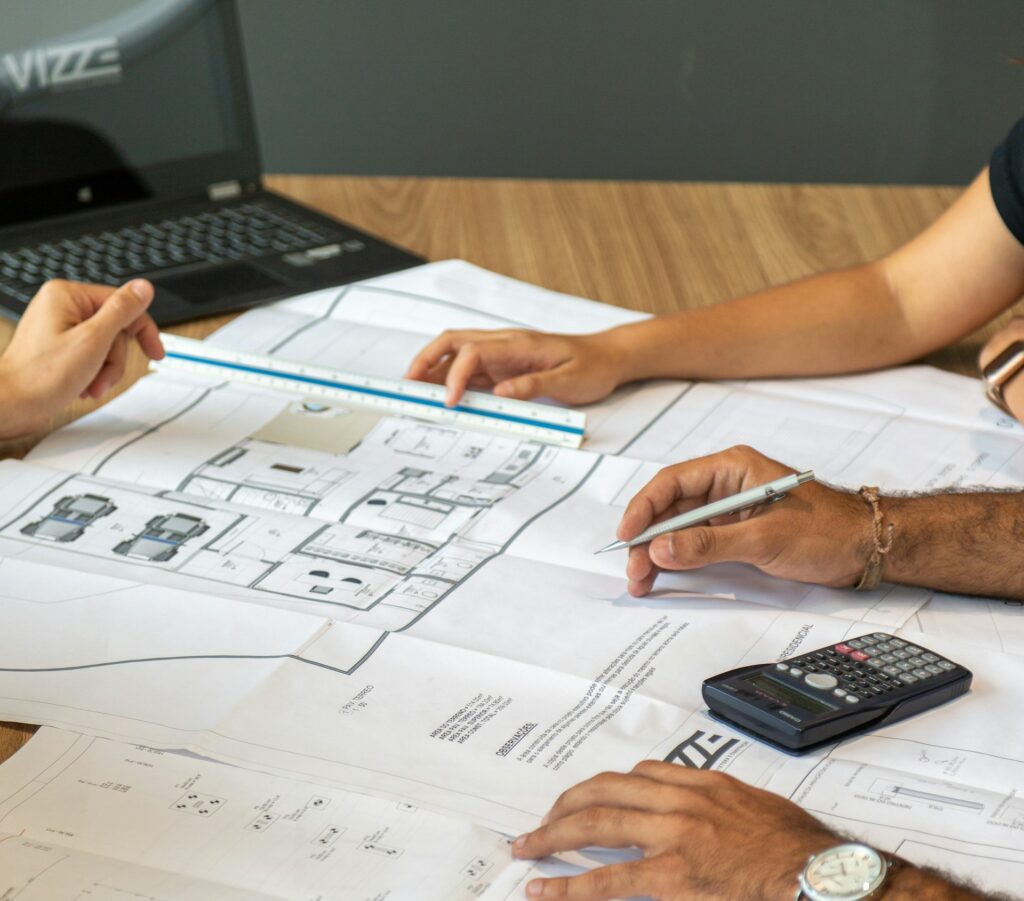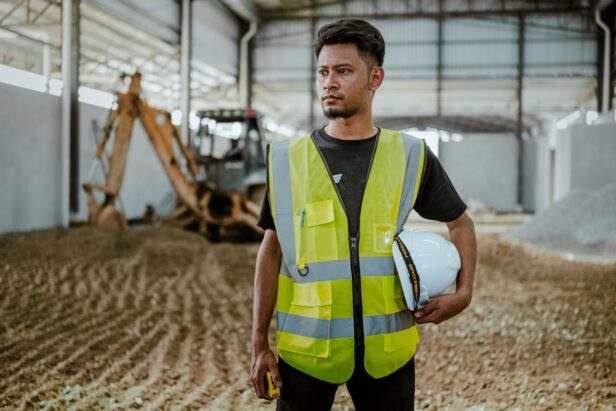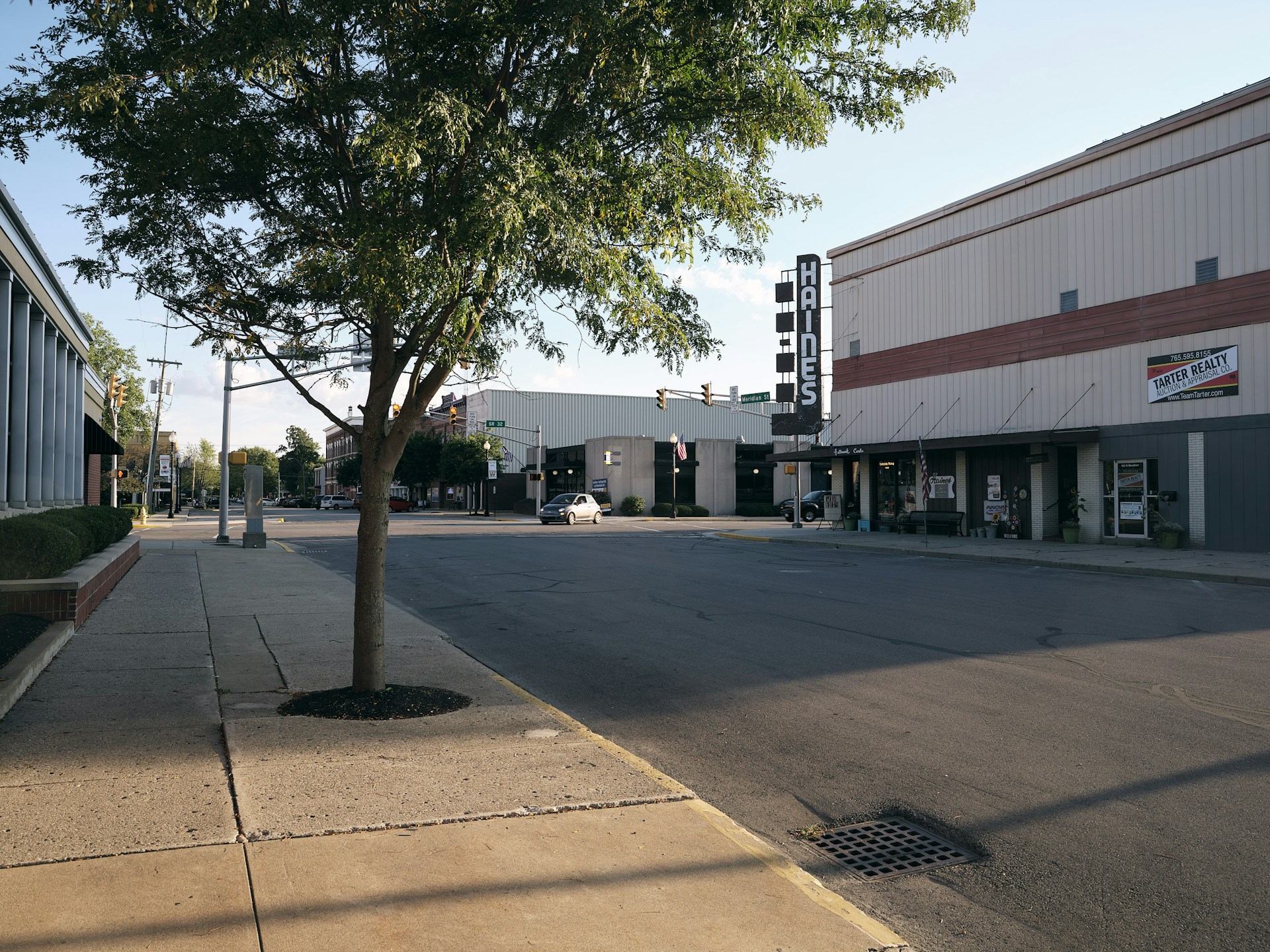When Target needs a new 135,000-square-foot store built in 18 weeks, or Walmart requires an open remodel while keeping 400 customers shopping daily, they call a Big-box retail general contractor. These specialized builders manage massive retail projects where timing, scale, and operational continuity determine success or failure.
We coordinate superintendents, specialist trades, and extensive subcontractor networks to deliver ground-up builds and complex remodels across shopping centers, strip centers, and major retail developments. The focus stays locked on speed and precision because every day a store stays closed costs revenue, and every safety incident threatens the entire timeline.
Which Project Types Fall Under Big-Box Retail Construction?

Big-box retail construction encompasses a wide spectrum of project types, each with distinct requirements for coordination and execution. We handle everything from single-location flagship stores to complex multi-site roll-out programs across diverse retail formats.
Flagship stores represent the premium end of retail construction. These high-visibility locations demand exceptional attention to brand standards, advanced MEP systems, and often incorporate cutting-edge technology for customer experience. Upgrades to existing flagship locations typically involve extensive renovation while maintaining operational continuity.
Store-Level Construction Projects
Open remodels present unique challenges in big-box construction. We coordinate work phases to minimize disruption while stores remain operational, managing everything from temporary barriers to adjusted material delivery schedules. This approach helps retailers maintain revenue streams during construction periods.
Storefront and façade remodels transform the exterior presence of retail locations. These projects often involve structural modifications, new glazing systems, and updated signage installations that align with evolving brand standards. We coordinate closely with local permitting authorities since façade work typically requires additional design reviews.
New construction projects, commonly called ground-up builds, involve developing retail spaces in new territories or markets. These projects require comprehensive site development, from utility connections and parking lot construction to full building envelope installation. We manage the entire process from initial sitework through final occupancy permits.
Tenant And Space Conversion Projects
Tenant improvements and build-outs transform raw retail shells into functional store environments. This work includes interior partitions, specialized flooring systems, retail-specific lighting, and the MEP infrastructure needed to support point-of-sale systems and security equipment.
Mall store conversions involve adapting existing retail spaces for new tenants or converting traditional mall storefronts into modern retail environments. We often work within the constraints of shared utilities and common area access while coordinating with mall management and other tenants. New anchor stores require substantial structural and infrastructure work since these large-format retailers typically need specialized loading docks, expanded electrical service, and custom HVAC systems.
Large-Scale Development Projects
Shopping center build-outs encompass both individual tenant spaces and common areas within retail developments. Ground-up shopping centers involve master planning coordination, phased construction scheduling, and infrastructure development that serves multiple tenants simultaneously. Site enhancements include landscape installation, streetscape improvements, and hardscape elements like decorative paving and pedestrian areas.
Multi-site roll-out and refresh programs represent some of the most complex coordination challenges in retail construction. We manage simultaneous projects across multiple locations, standardizing construction processes while adapting to local code requirements and site conditions. These programs often involve strict timeline coordination to support corporate marketing campaigns and grand opening schedules.
Specialized Retail Categories
Grocery and supermarket construction requires specialized knowledge of refrigeration systems, food service equipment, and health department compliance standards. These projects often include complex utility coordination for walk-in coolers, freezer units, and specialized ventilation systems required for prepared food areas.
Specialty retail encompasses everything from electronics stores to automotive service centers, each requiring unique infrastructure considerations. Health and medical retail spaces demand additional compliance with healthcare facility standards, specialized electrical systems for medical equipment, and often require enhanced air filtration systems.
Warehouse and distribution centers supporting retail logistics involve heavy-duty construction standards. These facilities require high-clearance structures, specialized loading dock configurations, and infrastructure designed to support automated sorting and storage systems. Fire protection systems must accommodate high-value inventory storage while meeting stringent safety codes.
What Capabilities And Resources Should You Expect From A GC?

Evaluating a general contractor for multi-state retail programs requires examining their operational infrastructure and proven track record. We focus on capabilities that translate directly to successful project delivery at scale.
Experience managing large projects end-to-end forms the foundation of reliable general contracting. Look for contractors who demonstrate comprehensive project oversight from initial sitework through final closeout. This experience should include managing complex logistics, coordinating multiple trades simultaneously, and handling the regulatory compliance required across different markets.
Dedicated superintendents and specialist trades ensure consistent oversight and quality execution. The best contractors maintain field leadership teams with deep retail experience rather than rotating personnel between unrelated project types. These superintendents understand the unique requirements of keeping retail operations running during construction and the tight timelines that define successful store openings.
A broad, pre-vetted subcontractor and vendor network enables contractors to execute projects efficiently across multiple states. Networks spanning tens of thousands of qualified subcontractors provide the depth needed for simultaneous roll-outs. We verify subcontractor qualifications, safety records, and performance history before bringing them onto projects. This vetting process eliminates delays from incompetent trades and maintains consistent quality standards.
Strong safety culture and consistent quality control protect both workers and project timelines. Effective contractors implement comprehensive safety programs that exceed OSHA requirements, conduct regular training, and maintain detailed inspection protocols. Quality control systems should include regular progress reviews, material inspections, and standardized procedures that ensure consistent execution across all project sites.
Proven schedule discipline and timeline management separate reliable contractors from those who create costly delays. Look for contractors who use integrated project management systems, maintain detailed milestone tracking, and demonstrate the ability to coordinate complex phasing requirements. This capability becomes critical when managing open-store remodels or coordinating multiple simultaneous locations.
Construction management leadership from preconstruction through closeout ensures seamless project execution. The contractor should provide dedicated project managers who handle everything from initial cost estimation and permit acquisition through final inspections and warranty follow-up. This end-to-end accountability eliminates gaps that can derail projects.
Licensing coverage that supports multi-state roll-outs enables contractors to execute programs without geographic limitations. Verify that the contractor maintains current licenses in all target states and understands local building codes, permit requirements, and inspection processes. This coverage eliminates the need to coordinate multiple local contractors and ensures consistent project management approaches.
How Do Timelines, Sizes, And Delivery Methods Vary In Big-Box Retail?
Project scope drives duration more than any other factor in big-box retail construction. Stores in the 32,000 to 56,000 square foot range typically require 12 weeks for completion, though this baseline shifts based on complexity and delivery approach. We track these timelines carefully because developers need predictable schedules for lease negotiations and opening dates.
Size impacts everything from permit approval time to material delivery coordination. Smaller formats around 32,000 square feet often move faster through municipal review processes. Larger footprints approaching 56,000 square feet require additional structural considerations and utility capacity planning that can extend preconstruction phases.
Design-Build Accelerates Project Delivery
Design-build delivery method eliminates the traditional handoff between design and construction phases. We coordinate architects, engineers, and construction teams from project start, which typically reduces overall timelines by 20 to 30 percent compared to design-bid-build approaches. This integrated approach proves especially valuable for big-box retailers working with tight opening deadlines.
The design-build method streamlines coordination by placing both design and construction responsibilities under a single contract. We can begin construction on foundations and structural elements while finalizing interior design details, creating schedule overlap that accelerates delivery.
Open-Store Remodels Require Phased Construction
Open-store remodels demand careful phasing to maintain customer access and sales flow. We typically divide these projects into zones, completing work in sections while keeping other areas operational. Night and weekend scheduling becomes critical for major infrastructure changes like electrical and HVAC upgrades.
Phased construction adds coordination complexity but preserves revenue during renovation periods. We sequence work to minimize customer disruption, often starting with back-of-house areas before moving to sales floor sections. This approach can extend project duration by 15 to 25 percent compared to full closure scenarios.
Pre-Lease Analysis Informs Decision Making
Pre-lease analysis helps property owners and retailers assess project feasibility before committing to lease agreements. We evaluate site conditions, local permitting requirements, and construction costs to provide accurate budget projections. This service proves especially valuable for retailers expanding into new markets where local construction costs and regulations vary significantly.
Our pre-lease assessments include structural evaluations, utility capacity reviews, and code compliance analysis. These studies identify potential cost drivers early, preventing budget surprises during construction. The analysis typically requires two to three weeks but can save months of delays later in the process.
Comprehensive Service Integration
Modern big-box retail projects often require services beyond basic construction. We coordinate architectural support for space planning modifications, interior design for brand compliance, and energy consulting for utility efficiency requirements. Equipment installation covers everything from specialized refrigeration systems to advanced point-of-sale infrastructure.
Tenant build-out services encompass the full transformation from shell space to operational retail environment. This includes flooring installation, lighting systems, signage coordination, and fixture placement. Full tenant build-out typically adds four to six weeks to project timelines but delivers a completely move-in-ready space.
Next Steps For Planning A Big-Box Retail Build

Define your scope and delivery method early to streamline decision-making throughout the project. Clear parameters help contractors provide accurate estimates and realistic timelines. Consider whether design-build coordination will benefit your schedule, especially for complex roll-out programs that demand consistent execution across multiple sites.
Confirm the contractor’s experience with big-box and open-store work through specific project examples and client references. Ask about their track record managing similar square footage ranges and their approach to maintaining operations during phased remodels. Experienced contractors understand the unique challenges of retail construction, from managing customer access to coordinating with mall management teams.
Ask about safety practices, schedule controls, and their subcontractor network before making your selection. Thorough subcontractor vetting protects your project from delays and quality issues. Request details about their Experience Modification Rate and OSHA compliance history to gauge their safety culture and risk management approach.
Contact EB3 Construction to discuss your big-box retail construction needs and develop a comprehensive project plan.



